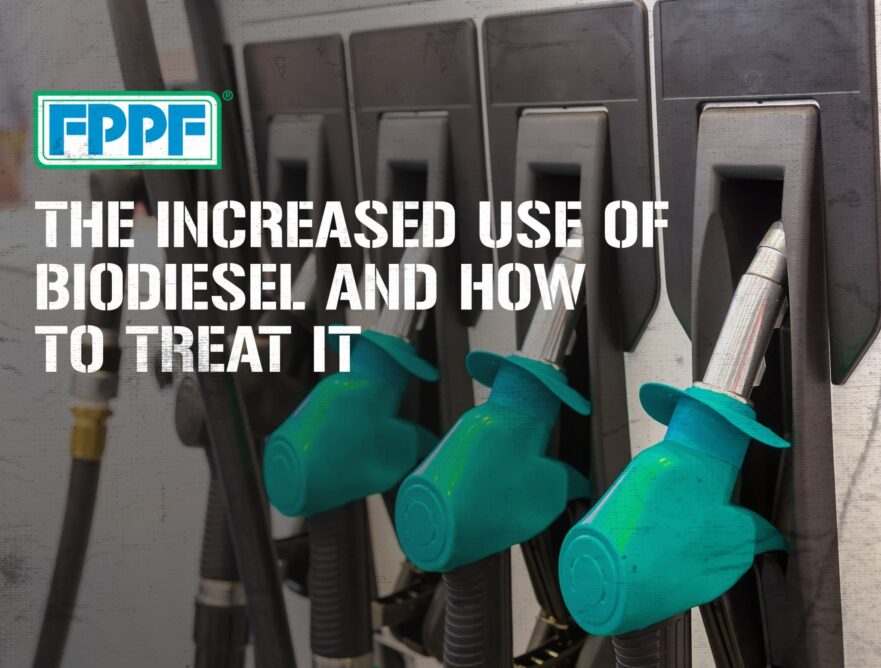fuel additive Company

The Increased Use of Biodiesel and How to Treat It
What Is Biodiesel?
Biodiesel is a renewable, clean-burning fuel that can be used in diesel engines. It’s made of a unique blend of recycled cooking oils (i.e., vegetable oil, soybean oil) and animal fats. It can be used as a diesel fuel replacement, in combination with petrodiesel or as a heating oil replacement.
It naturally has strong lubricity properties as well as cetane ratings. These properties as well as lower emissions, make biodiesel an appealing option. However, just like traditional diesel fuels if left untreated, biodiesel can still lead to larger fuel-related issues within your injection system and engine.
Biodiesel Fuel Problems
Although it’s a biofuel that leads to better emissions, biodiesel has been shown to lead to some of the same issues present in regular diesel. For example, biodiesel has shown to absorb water from the atmosphere, which serves as a nutrient-rich breeding ground for bacteria and fungi. The presence of water in biodiesel can then cause fuel to age much faster and form sludge and deposits within your fuel system.
How to Treat Biodiesel
As biodiesel became more popular and readily available, FPPF formulated a unique product based on our most comprehensive diesel fuel additive—Fuel Power. FPPF Biodiesel Fuel Power is the same Fuel Power customers have come to rely on but formulated to absorb water specifically in biodiesel. This formulation’s active ingredients allow the biofuel to be combusted easier. And because the chemical properties of biodiesel contain more carbon-based components, we designed our biodiesel treatment to strengthen the chemicals and reduce the aging process.
FPPF Biodiesel Fuel Power also helps to prevent the formation of sludge and deposits. By controlling water in biodiesel, Biodiesel Fuel Power reduces the potential for bacteria and fungi growth, giving your biodiesel the treatment it deserves.
It’s also important to note that these problems can become more frequent in colder climates and seasons. It’s why we’ve developed a unique biofuel stabilizer that treats up to 250 gallons of biodiesel up to B-20. FPPF Biodiesel Treatment is specially formulated for all biodiesel fuels, including B-20 (typically 20% soy or vegetable oil and 80% #2 diesel fuel) and keeps these fuels flowing in temperatures as low as -40°F. We recommend you be proactive with your winter biodiesel treatment regiment when the temperatures start to dip around 30°F.
If you’ve made the switch from traditional diesel fuels to biodiesel, you’ve done well to reduce your emissions. However, you still should treat it with quality additives. Turn to FPPF to treat every fill-up of biodiesel and get the most out of your biofuel.
